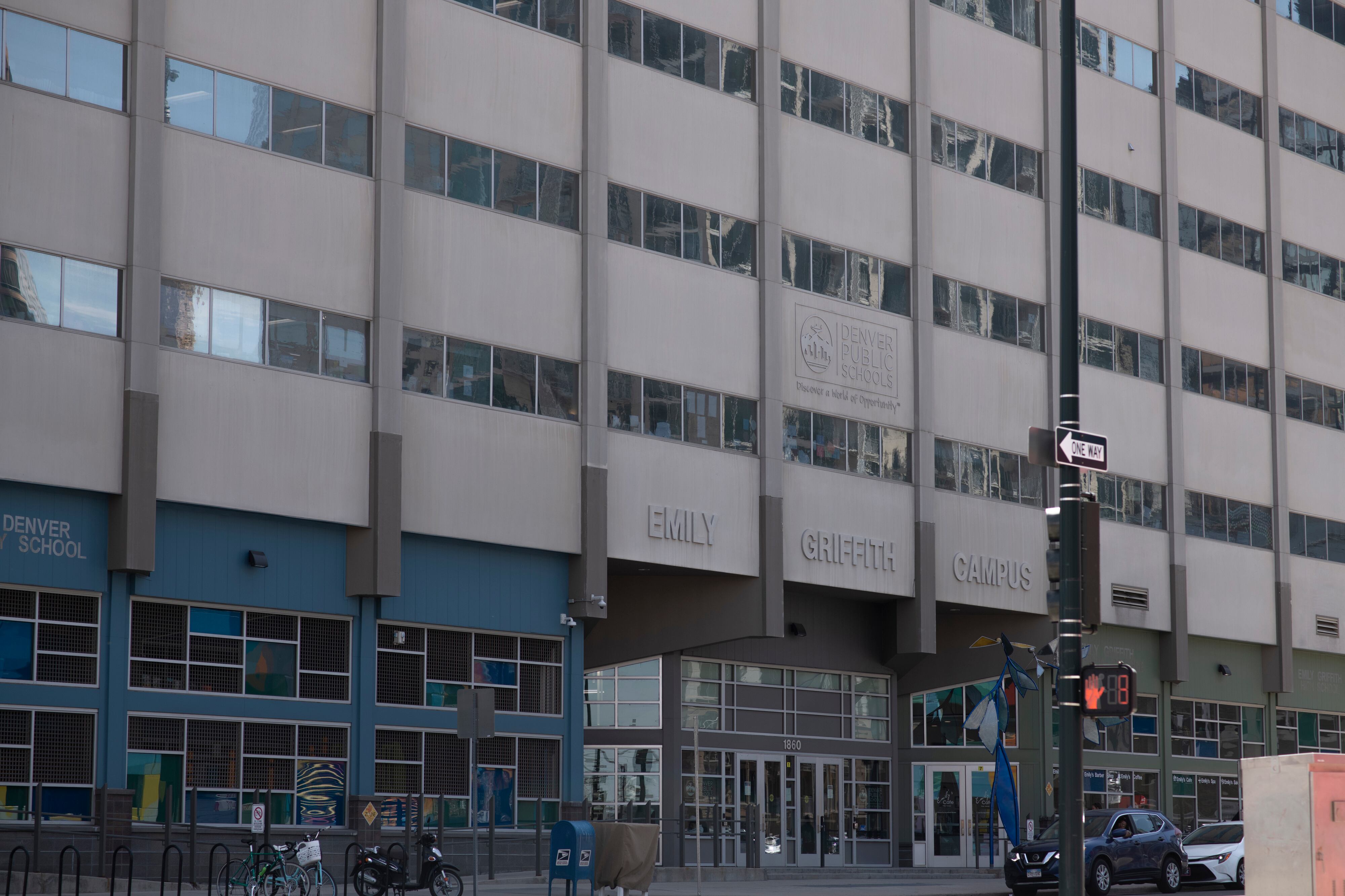Sign up for Chalkbeat Colorado’s free daily newsletter to get the latest reporting from us, plus curated news from other Colorado outlets, delivered to your inbox.
Denver Public Schools will soon debut a new discipline matrix — a flowchart of sorts that gives school staff guidance on when students can be suspended or expelled for behavior ranging from bringing a gun to school to bullying.
The new matrix will be more detailed than the current one, according to a presentation given by district officials to the school board Thursday. It is meant to be less subjective, more specific, and more realistic. It will include greater differentiation between offenses and provide real-world examples.
The presentation includes a few of those examples. For instance, it defines “extortion/sextortion,” an offense for which a student could be suspended, as: “Student A (willingly or unknowingly) shares a nude photo with Student B. Student B tells Student A they must pay them $1000 to keep it off Instagram.”
The current matrix was last updated in 2021 with an eye toward racial equity and reducing student contact with police. But it came under scrutiny after a shooting inside East High School in March 2023.
The shooter was a 17-year-old student who had previous weapons charges and had been expelled from a neighboring school district. That he was allowed to enroll in a traditional DPS high school caused some parents to question the district’s discipline policies. Neither the new matrix nor the old one addresses whether a formerly expelled student can enroll at a school.
The district was already planning to revise the discipline matrix before the East shooting, but the incident increased the urgency and deepened the scope of the changes, said DPS Deputy Chief of Staff Deborah Staten. The goal of the revisions is to help school staff “get very clear about what behaviors are, and what consequences for behaviors are, and not have to guess,” she said.
The new matrix is not necessarily more punitive. It emphasizes the use of restorative justice and encourages school staff to find alternatives to suspension if possible, Staten said.
“Our goal is not to have kids out of school,” she said. “Our goal is to have kids in school.”
The board does not need to vote on the new matrix, which will take effect this fall.
The new matrix has more levels
DPS hasn’t yet released the full matrix. But the presentation notes some of the changes.
The new matrix will include seven levels of behavioral offenses instead of six. Bringing a firearm to school is now a level seven offense — the most serious — and makes a student of any age eligible for expulsion. In other categories, younger students face lesser consequences.
Homicide and attempted homicide were also added as level seven offenses. Staten said that decision was “met with mixed emotions” but reflects the reality of urban school districts.
“Those are behaviors that happen in schools, so when we talked about this, we said, ‘Let’s call the thing the thing,’” Staten said.
Level four encompasses behaviors including disorderly conduct, defined as when two students “engage in mutual fisticuffs” that “does not result in major injury.” Level four offenses are punishable by an in-school or out-of-school suspension.
Level two includes nicotine offenses, such as vaping at school. Students could get an in-school suspension, but not an out-of-school suspension, for a level two offense.
Unlike in past revisions, a committee of DPS staff and community members met eight times over six months and made more than 75 recommendations for how to rewrite the matrix.
Black students are disproportionately disciplined
While the East shooting was a main driver of changing the matrix, Superintendent Alex Marrero acknowledged at an April school board meeting that there was another factor: DPS has been flagged by the state twice in four years for disproportionate discipline of Black students with disabilities under a federal regulation that requires states to monitor it.
In the 2023-24 school year, the out-of-school suspension rate for Black students with disabilities was nearly 20%, according to district data. The suspension rate for all students with disabilities was 10.6%, and the suspension rate for white students with disabilities was 5.5%.
Black students without disabilities are also disproportionately suspended, the data shows.
The district was first flagged by the state for discipline disparities in November 2020 based on data from the 2017-18, 2018-19, and 2019-20 school years, according to documents obtained by Chalkbeat in an open records request.
DPS had to submit a corrective action plan to the Colorado Department of Education and allocate a portion of its federal special education funding to address the problem. In its action plan adopted in 2021, DPS pledged to conduct a districtwide awareness campaign and provide targeted support to schools that had suspended the most Black students with disabilities.
DPS was not flagged by the state in the 2020-21 school year, which was largely remote due to the pandemic, or the 2021-22 school year, according to state records. But in November 2023, the district got a warning letter from the state that its schools had once again disproportionately suspended Black students with disabilities in 2022-23.
“We had no choice but to revise the previous version of the matrix,” Marrero said in April. “The way it was being used was incredibly disproportionate.”
The district will roll out the new discipline matrix to school leaders in July and begin training teachers and other school staff in August, officials said. The district plans to offer training to parents as well, and post the matrix on a website accessible on mobile devices.
Melanie Asmar is the bureau chief for Chalkbeat Colorado. Contact Melanie at masmar@chalkbeat.org.






